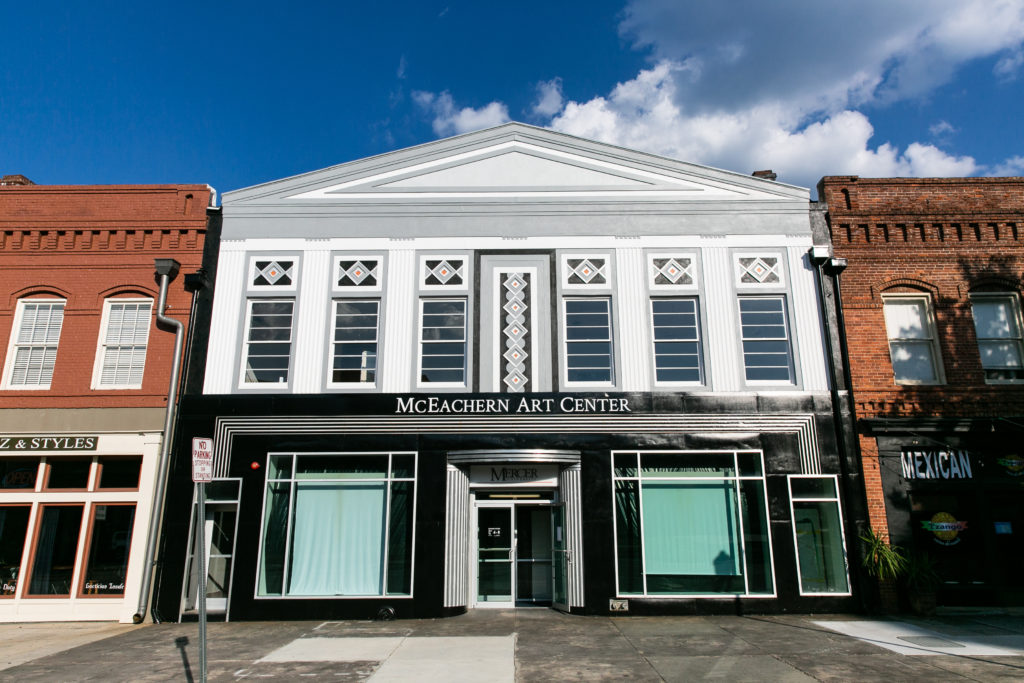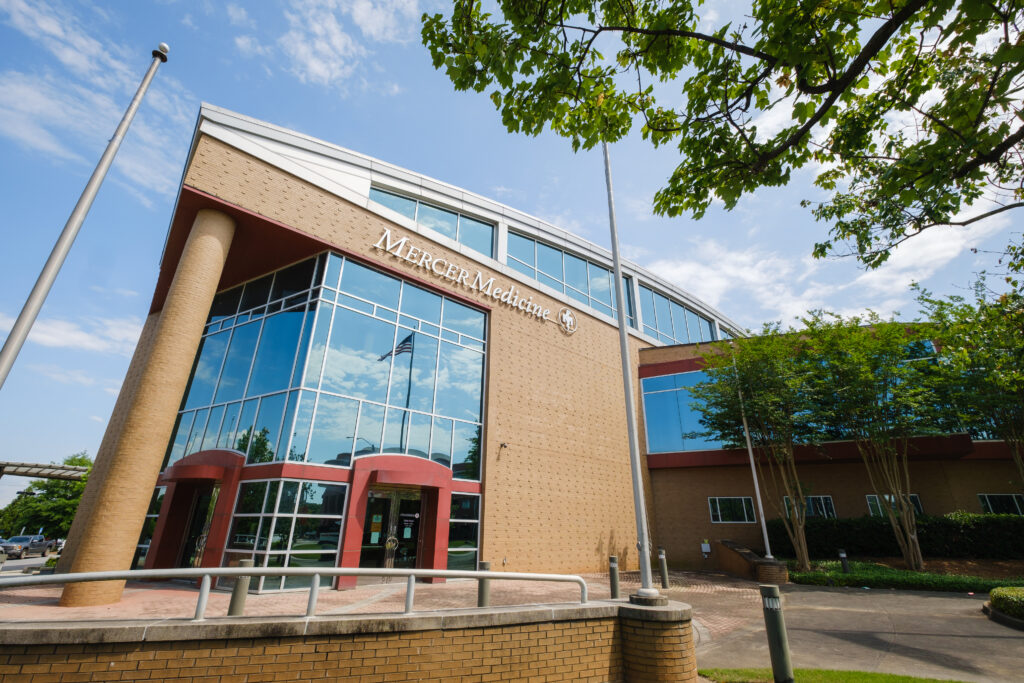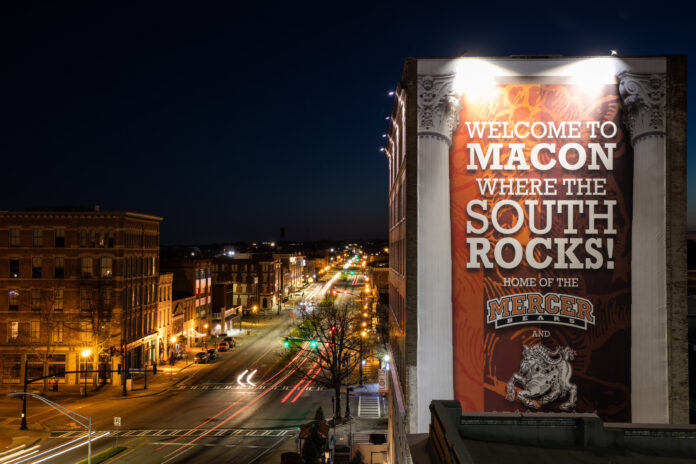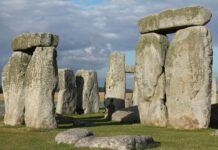The last two years have been monumental for downtown Macon, which received accolades such as the 2024 Great American Main Street Award and recognition from publications like the The New York Times, CNN, Forbes and Southern Living. The vibrant transformation of downtown Macon is evident, with storefront occupancy at an all-time high and 28% of those storefronts occupied by Black-owned businesses. The area is home to two fantastic hotels, making it a bustling destination for millions of visitors annually, and its more than 1,100 lofts are nearly 90% occupied.
However, none of this success would have been possible without the support of Mercer University. In 1996, downtown Macon was struggling and its buildings largely empty. Juanita Jordan of the Peyton Anderson Foundation recognized the urgent need for revitalization and founded NewTown Macon to spearhead this effort. Mercer University, from the very beginning, played a crucial role in this mission. Mercer’s president — first Dr. R. Kirby Godsey and now William D. Underwood — has consistently served as the chair of NewTown’s board, providing steady leadership through decades of progress.
One of the pivotal moments in downtown Macon’s revival was the launch of the College Hill project in 2007. This initiative, supported by the University and the John S. and James L. Knight Foundation, aimed to breathe new life into the College Hill Corridor. The project was driven by Mercer students, including Alex Morrison who is now executive director of the Macon-Bibb County Urban Development Authority, and sought to revitalize an area that had fallen into disrepair. Over seven years, they were able to create a vibrant arts and music district and a welcoming neighborhood.
“Working on the College Hill Corridor project changed the trajectory of my life, and it really boils down to the enthusiasm President Underwood had when we pitched him the idea,” Morrison said. “His championing allowed us to get more people on board and ultimately helped us build a coalition with the city. I think it changed Mercer’s outlook and scope of the project as it recommitted to downtown, specifically bridging campus to downtown.”
Mercer’s commitment to bridging the gap between campus and downtown has made a significant impact. Building on past successes, the University expanded it’s down payment assistance program in the Beall’s Hill neighborhood, which provided financial support to Mercer employees and other nonprofit staff who purchased homes in the historic neighborhood adjoining campus. It was modeled on a similar program that was deployed in the mid-1990s with Historic Macon Foundation in the Huguenin Heights neighborhood on the other side of Tattnall Square Park. These initiatives not only improved property values, but also created a diverse population in the area, making them among Macon’s most desirable neighborhoods.
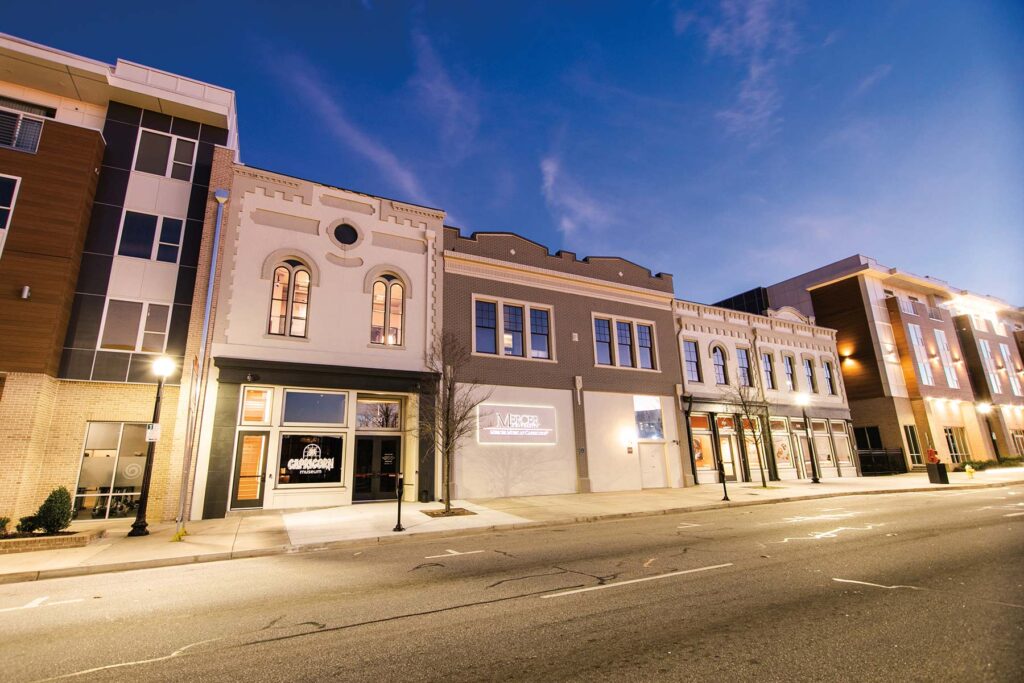
In addition to these efforts, Mercer has played a pivotal role in the revitalization of several key buildings in downtown Macon. Capricorn Sound Studios was once a thriving music studio where Southern rock was born. Artists like The Allman Brothers Band, Wet Willie and The Marshall Tucker Band got their start here, but by 1980, the Capricorn Records label had declared bankruptcy and the vacant building fell into disrepair. In 2015, Mercer, in partnership with Sierra Development and SPP Commercial, stepped in to rehab the site, transforming it into a thriving studio once again that also includes a museum and incubator for new music. Revitalization of the site included the addition of adjacent luxury loft apartments.
Mercer turned the building that once housed the Georgia Music Hall of Fame, which closed in the 2000s, into a Mercer Medicine community clinic. Mercer has also contributed to the restoration of The Grand Opera House and the McEachern Art Center, creating cultural hubs that benefit both students and the broader community.
The recent achievements are a testament to the collective and ongoing efforts of the entire Macon community. As the city continues to make headlines and celebrate its success, it’s important to recognize the profound impact Mercer has had and continues to have on Macon’s growth.
“Mercer was the first partner to join Peyton Anderson Foundation to form NewTown Macon in 1996 and launch Macon’s revitalization,” said Josh Rogers, CEO of NewTown Macon. “Since then, Mercer’s president has led our board through decades of slow and steady progress, culminating in the Great American Main Street Award this year. Simply put, downtown revitalization wouldn’t have happened without Mercer’s leadership, partnership and support. Not to mention the hundreds of Mercerians who lean in as students, faculty, staff and alumni to continue to shape a brighter future for Macon.”
To learn more about downtown Macon and revitalization efforts, follow NewTown Macon on Facebook, Instagram and LinkedIn.
